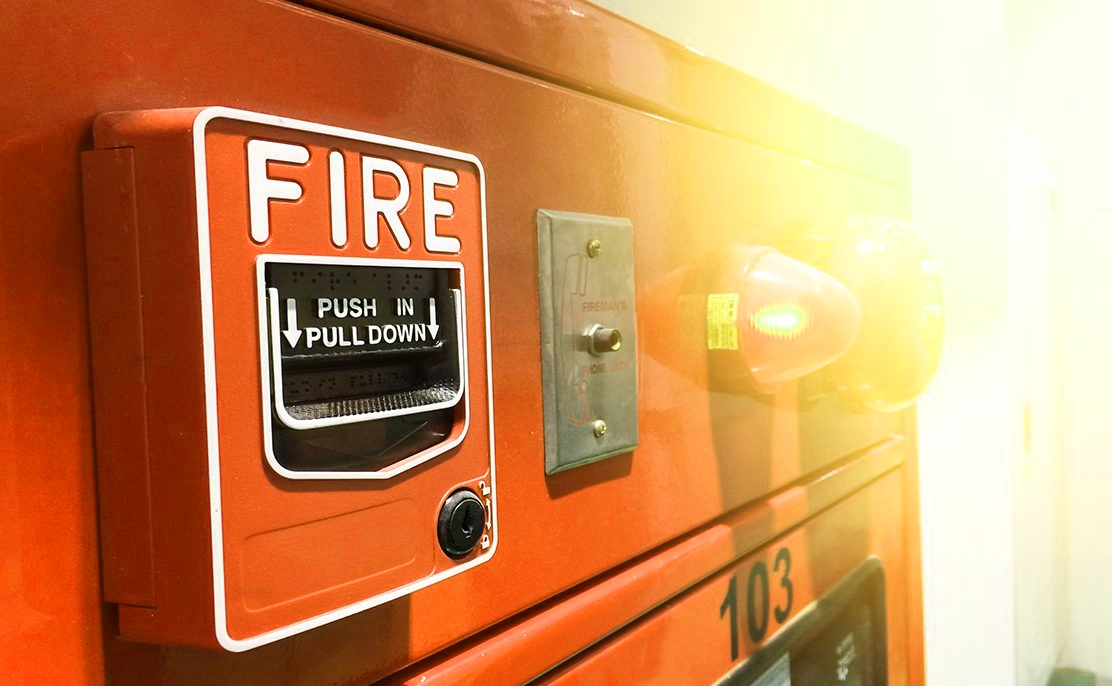How to Find the Reliable Fire Protection System Installation

Fire protection is a critical aspect of ensuring the safety of any building, whether it’s a residential property, commercial establishment, or industrial facility. The proper installation of fire protection systems can mean the difference between containing a small incident and facing a catastrophic disaster. In this article, we’ll guide you through the process of finding a reliable fire protection system installation to safeguard your property and the lives of those within it.
Read More: Understanding the Risks: Legal consequences of driving uninsured
Reliable fire protection system installation
1. Understanding the Importance of Fire Protection
Before diving into the specifics of finding a reliable fire protection system installation, it’s essential to understand why it matters. Fire can spread rapidly, causing extensive damage to property and endangering lives. Firepiping fire systems specialists can install a perfect fire protection system that can minimize these risks and provide valuable time for evacuation and firefighting efforts.
2. Assessing Your Needs
The first step in finding a reliable fire protection system is to assess your needs. Different buildings require different types of systems, such as sprinklers, fire alarms, smoke detectors, and fire extinguishers. Evaluate the size and layout of your property, its occupancy, and the potential fire hazards present.
3. Researching Fire Protection Companies
Finding a trustworthy fire protection company is paramount. Look for companies with a solid reputation, relevant certifications, and experience in installing systems for properties similar to yours. Read reviews, ask for recommendations, and check their portfolio to ensure they have a track record of successful installations.
4. Checking Certifications and Compliance
Reliable fire protection companies adhere to industry standards and regulations. Ensure that the company you choose holds the necessary certifications and licenses for installing fire protection systems. Compliance with local fire safety codes is crucial to ensure the effectiveness and legality of the system.
5. Customized System Design
A reliable fire protection company will offer a customized system design based on your property’s unique requirements. This includes strategically placing fire alarms, smoke detectors, and sprinklers to ensure comprehensive coverage. A one-size-fits-all approach doesn’t work in fire protection.
6. Quality of Equipment
The effectiveness of a fire protection system relies heavily on the quality of equipment used. Inquire about the brands and models the company uses for their installations. High-quality, reliable equipment is less likely to malfunction and more likely to perform effectively in a crisis.
7. Installation Process and Timeline
Understanding the installation process is crucial. A reputable company will provide you with a clear timeline of the installation process, from design and planning to testing and finalization. Delays in installation can leave your property vulnerable, so clarity on the timeline is vital.
8. Maintenance and Support
Fire protection systems require regular maintenance to ensure their functionality. Inquire about the company’s maintenance services and support options. A reliable company will offer routine inspections, testing, and prompt repairs if needed.
9. Cost Transparency
While cost is a significant factor, it should not be the sole criterion for choosing a fire protection company. Look for a company that provides transparent pricing, outlining the costs of equipment, installation, and maintenance. A clear breakdown helps you make an informed decision.
10. Customer References
Don’t hesitate to ask for references from past clients. Speaking to others who have worked with the fire protection company can give you insights into their professionalism, responsiveness, and the overall quality of their services.
11. Evaluating Training and Expertise
The technicians who install your fire protection system should be well-trained and knowledgeable. Inquire about the training and qualifications of the company’s staff to ensure they have the expertise required for a successful installation.
12. Communication and Responsiveness
Open communication is key throughout the entire process. A reliable company will be responsive to your inquiries, provide clear explanations, and address any concerns you might have. Communication breakdowns can lead to misunderstandings and installation issues.
13. Evaluating Past Projects
Review the company’s past projects to gauge the scope and complexity of installations they have undertaken. This can give you an idea of their capability to handle installations for your specific property type.
14. Seeking Professional Advice
If you’re unsure about the type of fire protection system your property needs, consider seeking advice from fire safety professionals. They can provide valuable insights and recommend reputable installation companies.
5 Benefits of a Security System

In an increasingly interconnected world, security is a paramount concern for individuals, families, and businesses alike. A security system is an essential tool that provides peace of mind and protection against potential threats. From safeguarding your loved ones to securing valuable assets, here are five benefits of a security system:
1. Deterrence of Criminal Activity
One of the primary advantages of a security system is its deterrent effect on criminal activity. Visible security cameras, alarms, and signage signal to potential intruders that the property is protected. Knowing that their actions are being monitored and recorded significantly reduces the likelihood of a break-in or trespassing. Criminals often choose easier targets, and a well-installed security system can make your property an unattractive option.
2. 24/7 Monitoring and Alerts
Modern security systems offer round-the-clock monitoring of your property. Whether you’re at home, work, or away on vacation, your security system keeps a watchful eye. Advanced sensors and surveillance cameras can detect unusual activity or breaches in real-time. If a potential threat is detected, the system can immediately send alerts to your smartphone or a designated monitoring center, allowing for swift action and response.
3. Protection Against Fire and Carbon Monoxide
Security systems are not limited to preventing unauthorized access. Many systems also include features such as smoke detectors and carbon monoxide detectors. In the event of a fire or the presence of dangerous gases, the system can alert you and the appropriate authorities, helping to mitigate the risks of property damage and harm to occupants.
4. Remote Access and Control
Today’s security systems offer the convenience of remote access and control. With a smartphone app or a web interface, you can monitor your property in real time, arm or disarm the system, view live feeds from security cameras, and receive alerts on the go. This level of control provides flexibility and ensures that you’re always connected to your security system, no matter where you are.
5. Reduced Insurance Premiums
Investing in a security system can lead to financial benefits as well. Many insurance companies offer reduced premiums to properties equipped with security systems. The reason is simple: a security system lowers the risk of theft, vandalism, and property damage, making the property less likely to file a claim. Over time, the savings on insurance premiums can offset the initial cost of installing a security system.
Read More: Expert Guidance for Entrepreneurs: Why You Need a Business Attorney
Conclusion
In conclusion, finding a reliable fire protection system installation involves thorough research, careful consideration of your property’s needs, and partnering with a reputable company that prioritizes safety. By following the steps outlined in this article, you can ensure the well-being of your property, its occupants, and the peace of mind that comes with effective fire protection.
FAQs
Q: How often should I have my fire protection system inspected?
A: It’s recommended to have your fire protection system inspected annually by professionals.
Q: Are there different types of fire extinguishers for different fires?
A: Yes, there are different classes of fire extinguishers designed for specific types of fires, such as electrical, flammable liquid, and more.
Q: Can I install a fire protection system myself?
A: Installing a fire protection system requires specialized knowledge and skills. It’s best to hire professionals for the job.
Q: Do fire protection companies offer emergency services?
A: Many reputable fire protection companies offer 24/7 emergency services to address any issues that may arise.
Q: What should I do if my fire alarm goes off accidentally?
A: If your fire alarm goes off accidentally, you should immediately silence the alarm and ensure there’s no actual fire. If unsure, contact your fire protection company for guidance.











